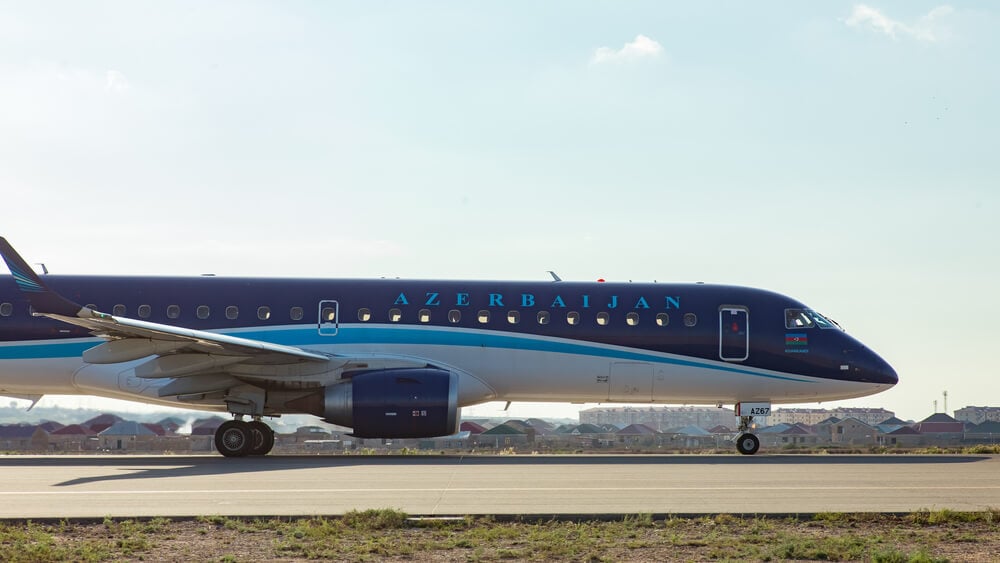Azerbaijan has achieved what many have not: to force Vladimir Putin to apologise. Putin's apology for the Azerbaijani passenger plane disaster was a necessary price for Moscow, which it had to pay, given that it had previously tried to get out of it.
Azerbaijani leader Ilham Aliyev has got what he asked for, but he seems to be asking Moscow for more. The degree to which Azerbaijan and its leader exert pressure on Moscow following the reported downing of a passenger plane that resulted in numerous casualties will significantly influence the future attitudes of many in the Caucasus region and Central Asia towards Russia.
Russia underestimated and even tried to humiliate Azerbaijan in the hours and days following the downing of an Azerbaijan Airlines plane in Kazakhstan that killed 38 people.
It used the usual mechanisms of covering up and denial of responsibility, combined with spreading fake news about the causes, which it has been using for a long time when it comes to the countries of the former USSR in similar crisis situations.
However, it will become clear that the Azerbaijani plane disaster differs from similar situations between Russia and the post-Soviet states in the past, and more importantly, that Azerbaijan is not an insignificant player in this power game that Moscow wants to play again.
“One of the moments that upset and surprised us was that official Russian structures put forward a version about the explosion of some gas cylinder. That is, it openly showed that the Russian side wants to cover up the issue, and this, of course, does no one any honour,” said Azerbaijani President Aliyev in an interview immediately after the plane crash.
Azerbaijan's demands
Baku immediately rejected all of Moscow's initial attempts to explain the plane crash as fabrication or, as Aliyev called them, "absurd theories."
In addition, Azerbaijan made three demands to Russia: an apology, punishment for the officials involved in downing the plane, and financial compensation for the families of the victims.
Only the first demand has received fulfilment thus far. Whether the other demands will be met depends solely on pressure from Baku, which is leading the "game" and which the leaders in both capitals are aware of.
Azerbaijani leader Aliyev has adopted an unusually tough stance towards Russia, a decision that shows that Moscow has only limited means of resistance.
Aliyev's claims served to strengthen his reputation as a strong leader
First, there is overwhelming evidence, including testimony from survivors, that the plane was brought down by an outside attack, and the only military operating in the area over Grozny in Chechnya where the plane was damaged is a Russian one.
Secondly, Aliyev's claims served to strengthen his reputation as a strong leader, which he otherwise enjoys among the domestic population. Perhaps most importantly, his position towards Moscow, and specifically Putin, stems from his belief that Azerbaijan is a significant partner of Russia, allowing for a more assertive approach.
Moscow avoids confrontation
The Kremlin has undoubtedly made similar assessments. Putin's apology shows that the assessment was to avoid an open conflict with the authorities in Baku.
First of all, Azerbaijan is still a significant economic area for Russia. It is one of the few places where Russia has successfully circumvented Western sanctions. In addition, Azerbaijan is the most important corridor for the movement of goods between Iran and Russia, on which Moscow is particularly dependent due to its isolation in the West.
If Moscow does not fulfil Azerbaijan’s demands, this would lead to a direct political confrontation between the two countries
If Moscow does not fulfil Azerbaijan’s demands, this would lead to a direct political confrontation between the two countries, which Russia does not want, both because of its still close relations with this major Caspian oil and gas producer and because of possible confrontation with Turkey, another important ally of Azerbaijan in the region.
The consequences of such a calculation are significant for Moscow, and they are even more significant for Putin personally. He demonstrated that he found himself in a precarious situation, compelled to offer an apology and abandon his traditional methods of ignoring and manipulating crises with smaller states in the neighbourhood.
After this incident, he proved his inability to be a reliable security partner, which further undermined his credibility with a number of partners in the Caucasus region and Central Asia.
Further development depends on Aliyev, not Putin
Baku's extreme mistrust in the objectivity of Russian official institutions is also evident in the fact that Azerbaijan has left the investigation of the flight data (black boxes) to Brazil, the manufacturer of the crashed aircraft, and not to Russia, the country over whose territory the accident occurred.
 Moscow has little room to avoid the punishment of some military scapegoats and the payment of compensation to the families of the deceased
Moscow has little room to avoid the punishment of some military scapegoats and the payment of compensation to the families of the deceased
Azerbaijan's actions, especially Moscow's patronising reactions, can serve as a model for others in the region and show that a tough stance against Russia can bring political benefits.
Whether the otherwise close relations between Russia and Azerbaijan will return to an upward trend or cool down further depends not on Moscow, but on the authoritarian Azerbaijani leader and his further political judgements.
Azerbaijan has made the most extreme, nearly humiliating demands, but Moscow has little room to avoid the punishment of some military scapegoats and the payment of compensation to the families of the deceased.
It is likely to do so, just as Putin was quick to apologise after Aliyev's demands, but it remains uncertain whether the list of demands will be met. Furthermore, Russia will remain uncertain about the exact cost of its arrogance in shooting down the plane and attempting to conceal it, particularly in relation to the wider environment in the Caucasus region and Central Asia.